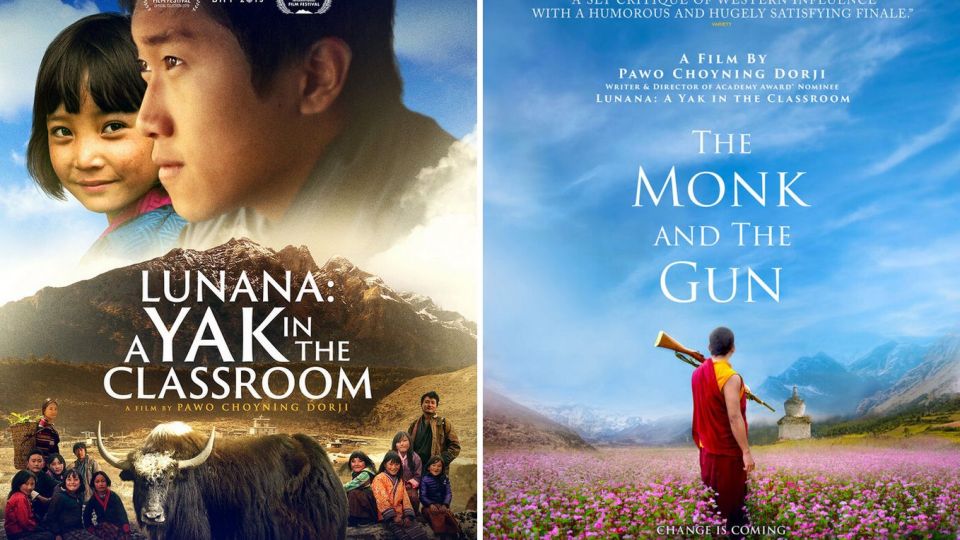July 23, 2024
THIMPHU – Two Bhutanese films, ‘Lunana: A Yak in the Classroom’ and ‘The Monk and the Gun’, directed by Oscar-nominated filmmaker Pawo Chonying Dorji, have had an incredible run in international cinemas, collectively grossing over USD 3 million in revenue so far.
The 41-year-old director’s debut feature film ‘Lunana: A Yak in the Classroom’ was nominated for Best International feature film at the 94th Academy Awards. His second feature ‘The Monk and the Gun’ was shortlisted for the Best International feature film at the 96th Academy Awards.
According to the Internet Movie Database (IMDb), a popular online website for information and statistics on movies, TV shows, actors and directors, ‘Lunana: A Yak in the Classroom’ has grossed USD 2 million while ‘The Monk and the Gun’ has earned USD 1 million so far.
The revenue for ‘Lunana: A Yak in the Classroom’ is expected to further increase as it does not yet include earnings from markets in Taiwan and Japan. The film also set records in Japan and Brazil, running continuously in commercial theatres for over a year, unlike most international films, which typically run for one to two months.
‘The Monk and the Gun’ started its international theatrical release only recently in France, Italy, and the United States of America. The film is set to release in Spain, Germany, Austria, and other parts of the world. Speaking to Kuensel, Pawo Chonying Dorji said that as a Bhutanese filmmaker, this success is extremely humbling, and considering the limitations of the film industry in the country and the production challenges both the films faced, particularly shooting a film in a remote place like Lunana with no modern amenities.
“As a filmmaker, I have always believed that the most important element in the art of filmmaking is the audience; artists create for the sake of the audience and it is the support of the audience that inspires us to create more,” Pawo Chonying Dorji said.
The international success of these two films is a first for films from Bhutan and a Bhutanese filmmaker.
Pawo Chonying Dorji said that the international commercial success of the two films that showcase Bhutan proves to us that the world is an eager audience for Bhutanese stories. “I hope that the journeys of the two films show our local filmmakers that, yes, Bhutanese films do have a market beyond Bhutan, and that the international audience wishes to watch Bhutanese films,” he added.
‘Lunana: A Yak in the Classroom’ has been translated into over 27 languages. As ‘The Monk and the Gun’ continues its international run, the film has been translated into seven languages so far – English, French, Korean, German, Spanish, Italian, Dutch, Slovenian and Norwegian.
Pawo Chonying Dorji said that film is the most powerful medium of story telling and one that is also universally accessible as societies the world over watch and enjoy films.
He said that as a small developing, landlocked country with limited resources, financial constraints will always pose challenges. “It is pertinent, therefore, for us to explore alternative avenues to generate awareness and promote brand ‘Bhutan.’ One important avenue which is often overlooked, I feel, is the soft power potential of the arts, particularly films.”
Pawo Chonying Dorji added that a thriving film industry can do so much to promote Bhutan and its culture while also making significant contributions to the economy. “Our government must try and help the Bhutanese film industry.”
He suggested that the government must make it easier for filmmakers to make films through incentives and easing of regulations, among others.
“It will benefit the industry so much more than building new cinema halls or film cities. Our current cinemas already run at half capacity and much of our younger, educated film watching population have migrated to Australia and Canada. Why build cinemas when there is just no domestic market?”
‘Lunana: A Yak in the Classroom’ was made with a budget of USD 200,000 while ‘The Monk and the Gun’ had a much bigger budget of USD 700,000.
Pawo Chonying Dorji is the youngest recipient of Druk Thuksey – the highest civilian award in Bhutan. He is also a member of the Academy of Motion Picture Arts and Sciences.


